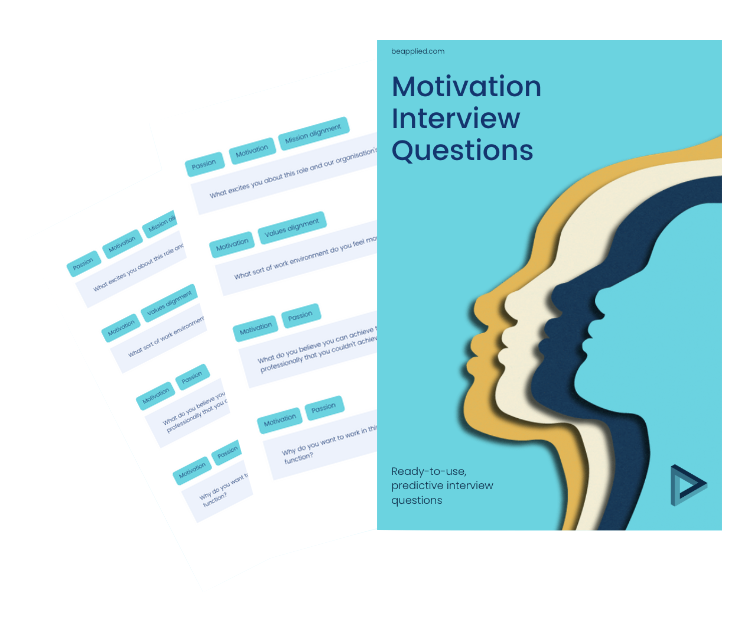Motivation Interview Questions

About this skill
No matter what role or function you're hiring someone for - motivation is critical. This is essentially a measure of how passionate, energised and mission-driven a candidate is. For any role, you'll want to make sure candidates are genuinely excited to work for your organisation.
What skills should you be looking for?
What do you believe you can achieve through this role personally or professionally that you couldn't achieve in another organisation?
Why do you want to work in this role/team as opposed to any other function?
You have been working on an important project for the past few weeks and its deadline is now one week away. You have several other small tasks to complete during the coming week, but if you plan your time carefully you should be able to complete each of your current tasks effectively. While working through these tasks, your manager unexpectedly asks you to help on an urgent task, stressing that this should now take priority over any other work you have. How do you respond?
You are working on a complex task - it is somewhat repetitive but there are a number of elements that need checking and correcting. This task was requested by an important customer and needs a high level of attention to ensure it is accurate. How do you maintain consistency and accuracy throughout the day and keep yourself motivated to finish the task efficiently and correctly?
What excites you about this role and our organisation's mission?
What are structured interview questions?
Structured questions (or work samples) are highly predictive, job-specific questions designed to simulate parts of a job.
Structured work sample questions are the most predictive form of assessment you can use. Why? Because they directly test for skills by asking candidates to think as if they were already in the job.
Diversity
Testing for skills instead of just experience makes interviews a more inclusive process. 60%+ of candidates hired through our process would've been missed using CVs/traditional interviews - most of whom are from underrepresented groups.
Accuracy
By simulating tasks that would realistically occur in the role, you can see how candidates would think and work should they get the job.What could be more predictive than having candidates do small parts of the job before actually getting it?
Candidate experience
Candidates genuinely enjoy being given a chance to showcase their ability - this is why we have a 9/10 average candidate experience rating (including unsuccessful candidates).

Decide on the skills you’re looking for
Choose 6-8 core skills required for success in the role. These can be a mix of hard, technical skills as well as soft skills and general working characteristics.You could also include one or two of your organisation's most relevant values.
Think of scenarios that would test these skills
Next, come up with either everyday tasks or rarer, more challenging scenarios that would test some of these skills. They can be day-to-day duties, bigger projects or specific dilemmas that a candidate may realistically face. Should they get the job.
Pose scenarios hypothetically to create your questions
Instead of your typical ‘tell me a time when’ questions, ask candidates what they would do if faced with a given scenario.It's not that experience doesn't have any value… it's just more predictive to test directly for skills, without making assumptions based on background.
Give yourself scoring criteria
Want to make more data-driven hiring decisions? Score candidates against set criteria.We’d recommend starting out with a simple 1-5 star scale and a few bullet points noting what a good, mediocre and bad answer might include.

Use review panels
Having team members join your interviews will result in fairer, more accurate scores.Three is the magic number - you’ll start seeing diminishing return after that

.svg)